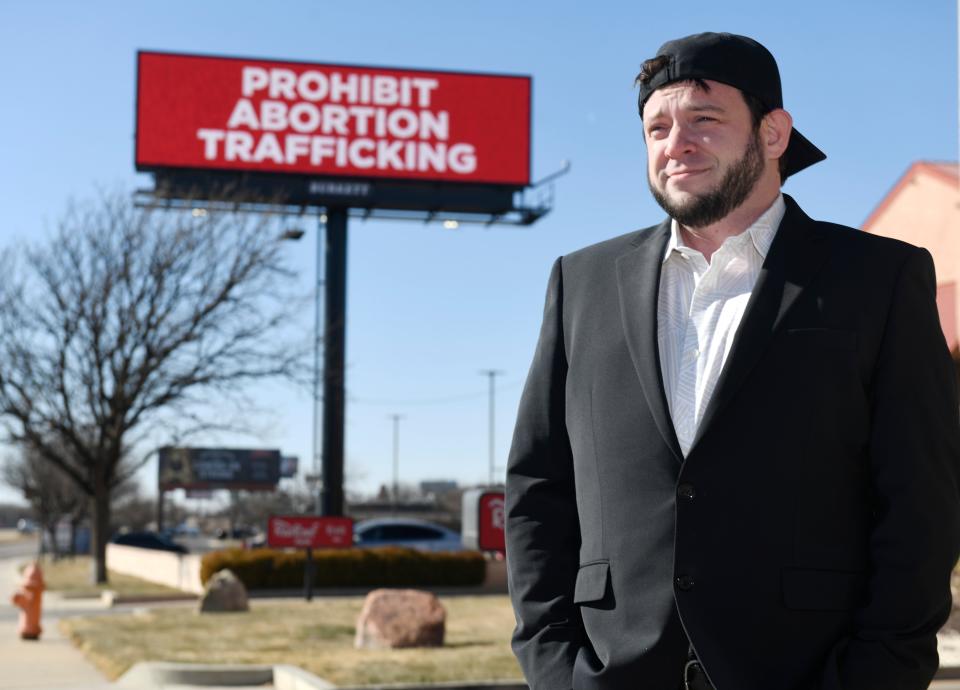A small Texas town prudently says no to expanding state's abortion ban | Editorial
Last Thursday, the city council of Clarendon took a bold step – it said no to an extreme anti-abortion measure. The three-member council unanimously voted down a proposed ordinance that would ban travel through Clarendon city limits for an abortion elsewhere, curtail sale and possession of medications linked to abortion, and block Clarendon residents from getting abortions – no matter where they happen to be in the world.
The stand makes the Panhandle town of about 1,700 a rarity – and a potential leader – for other Texas communities facing such proposals. Calling themselves “sanctuary cities for the unborn,” 69 cities across the country now have adopted such ordinances, 52 of them in Texas. Most have 25,000 residents or fewer except for Lubbock, with a population of 264,000. Of the dozens of cities that have considered these measures in Texas, Clarendon is one of the first to reject one, according to the Texas Tribune.
The Clarendon vote is important – but not for opposing the Panhandle's deep-red values. To the contrary. In this conservative town, leaders’ personal views on abortion simply took a back seat to the public good. Expanding Texas’ almost-complete abortion ban to test ideological frontiers simply came at too high a cost. With a clarity that other Texas communities should note, Clarendon’s leaders understood the real price of carrying out zealots’ drive to further control reproduction.
“Our business is making sure our city gets water, streets to drive on, trash is taken out and much more,” council member Eulaine McIntosh said before the vote. “We’re not allowed to take action beyond state law, and this ordinance comes very close to overstepping state law.”
The Clarendon measure was part of a movement to expand and test restrictions
Clarendon’s proposal didn’t sail in out of the blue. It’s the latest effort by anti-abortion pastor Mark Lee Dickson to expand – and test – current restrictions on reproductive rights. His strategy: pushing cities to adopt “sanctuary city” measures, often with doubtful legal merit.

But Clarendon understood – and rejected – the costs of this performance. First, Texas already has a near-total abortion ban. After the Supreme Court overturned Roe vs. Wade in 2022, Texas enacted some of the country’s most restrictive abortion laws. The procedure is illegal unless a physician, using reasonable medical judgment, deems it necessary to prevent the pregnant person’s death or serious risk of substantial impairment of a major bodily function.
Secondly, taking on the label of sanctuary city just transfers the financial and civic costs of an extremist political project onto everyday citizens. “Abortion has nothing to do with running the City of Clarendon,” Roger Estlack, the publisher of the Clarendon Enterprise, wrote before last week’s vote. “We elect our mayor and city council and then they hire employees to do important things that affect our daily lives. Their priorities are to make sure the streets are fixed, see to it the trash is collected, maintain a water system and provide a host of other city services.”
Adopting the measure could have turned neighbor against neighbor
What the proposal could do is pit neighbor against neighbor. Among the provisions of the 17-page proposal Dickson submitted is one permitting individuals to file lawsuits against abortion providers or anyone who gives financial or other kinds of help to women pursuing abortions.
Voting yes, in other words, could have turned one of the most divisive of national issues into a toxic local issue – poisoning the neighborly culture that gives the high plains such resilience. On a practical level, it would have pulled Clarendon's government away from its work. When the proposal was tabled previously for review, activists overwhelmed city workers with sometimes hateful emails and calls. “How much,” publisher Estlack wrote, “has this cost the city already in terms of money and lost productivity?”
Last week, Clarendon’s leaders chose services for its citizens over antiabortion grandstanding. Some other conservative communities seem to be questioning extreme abortion laws too. Since Roe v. Wade was overturned, the New York Times reported, in all seven states where citizens have directly voted on abortion measures, abortion rights won -- even in red states.
Following Clarendon’s lead, by focusing on services rather than ideology, could also pay off in less tangible terms. The same week that Clarendon’s council voted “no,” the Association of American Medical Colleges announced a troubling finding. For the second year in a row, U.S. medical school seniors were less likely to apply for residencies in states with deep restrictions on abortion. That includes Texas, where rural communities are already fighting to find doctors. If Clarendon’s leadership were echoed statewide, it might restore health to Texas in more ways than one.
This article originally appeared on Austin American-Statesman: A Texas town prudently says no to expanding the state's abortion ban

